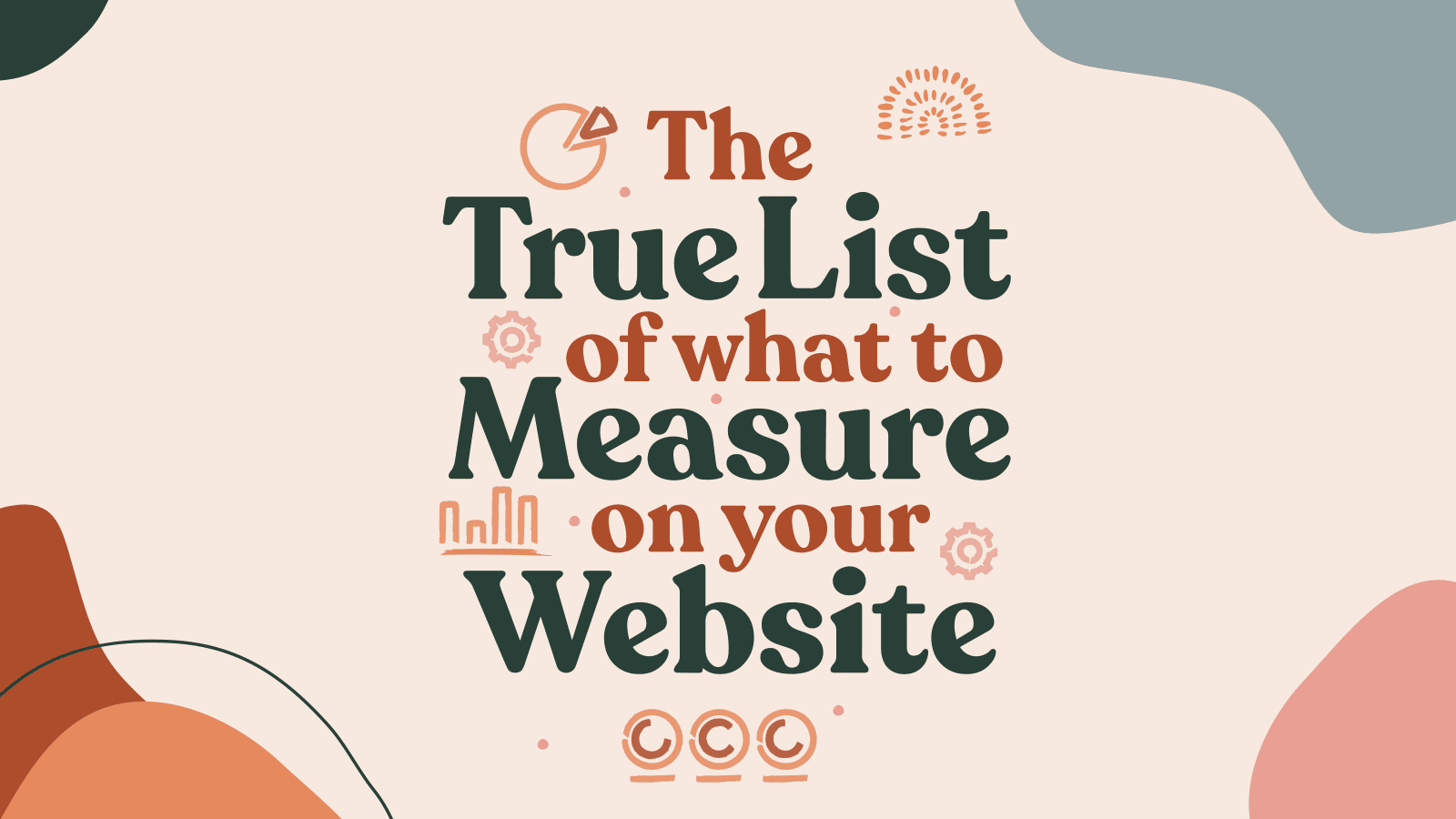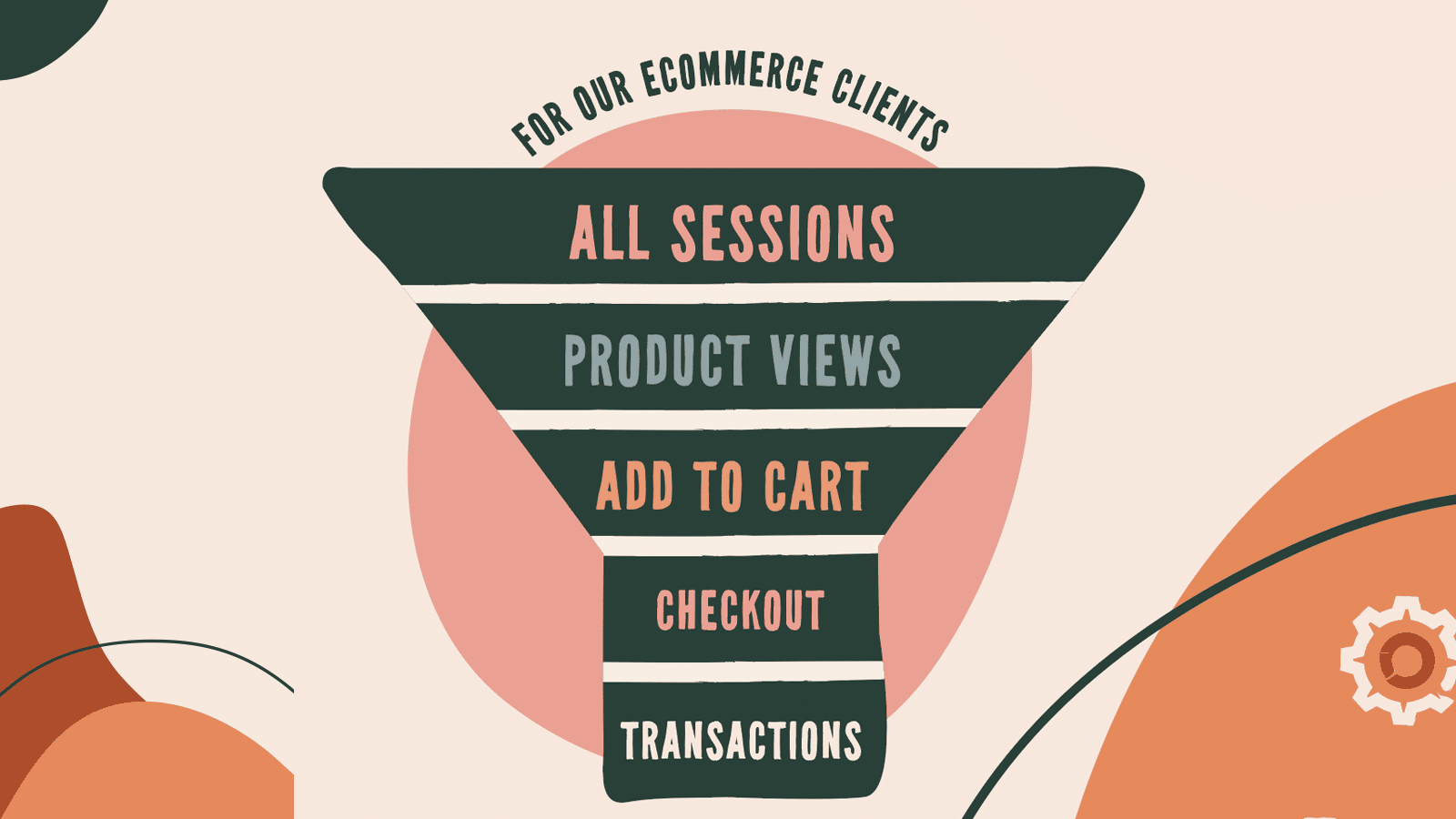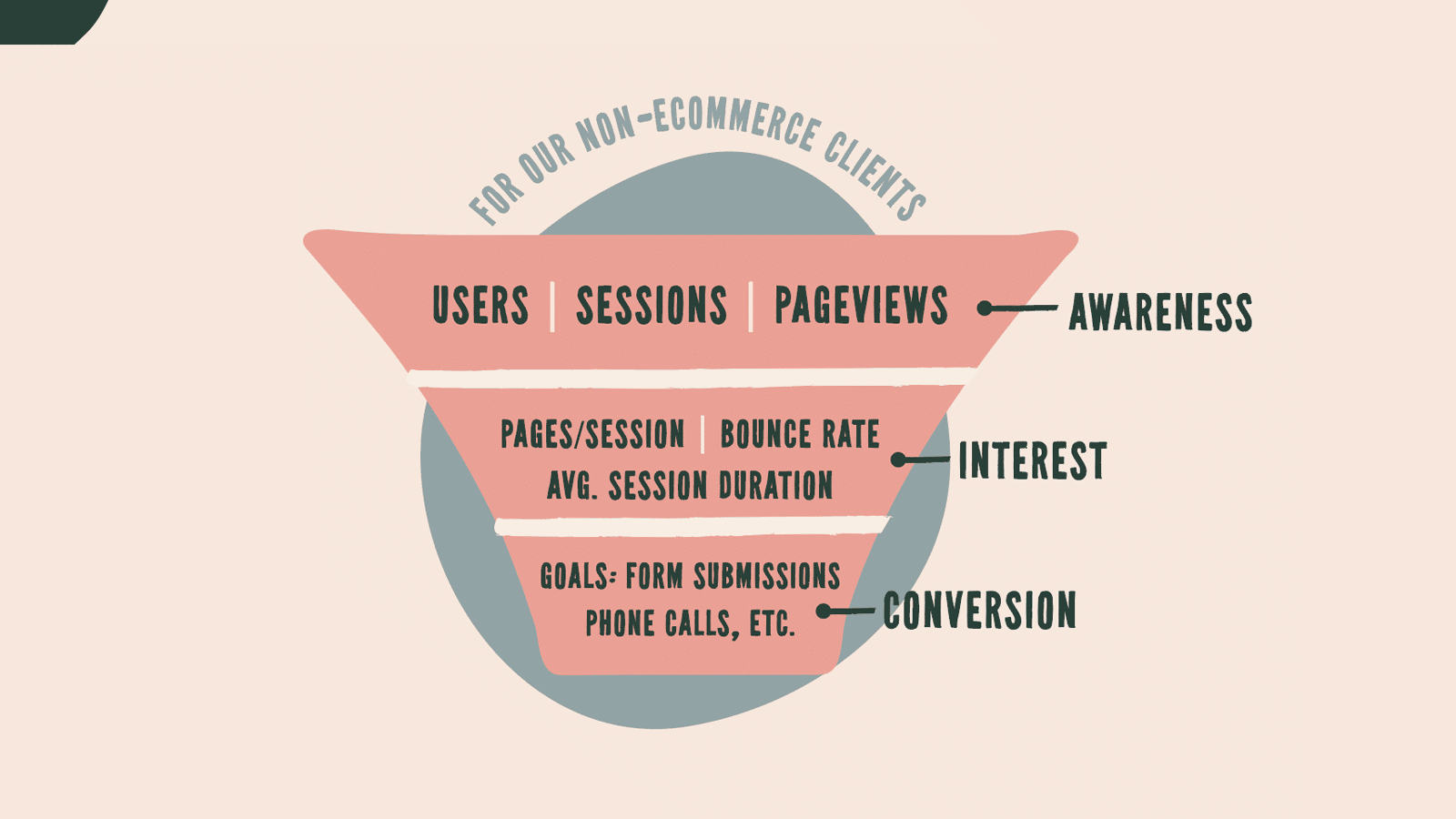The True List of What to Measure on Your Website

When we build – or even work on – a site for a client, our work is never “set it and forget it.” Everything we do at LEAP Agency, from creative to architecture, is built from real data and real results. If we add anything to your digital model, we want to ensure it’s being measured in real-time. With that data being tracked, our analytics + insight team can optimize it in real-time so you’re not wasting valuable dollars on marketing that is not working for your brand. That’s how we Market Less. Matter More.
But what we measure varies by client and their KPIs. When approaching a measurement protocol for any website, LEAP Agency’s analytics + insight team typically starts by establishing whether the site is serving an eCommerce or non-eCommerce function. We have the most success analyzing data when we have an event tracking plan in place to standardize data collection, establish goals and objectives, and ensure there are measurable key performance indicators tied to each tactic we employ.

The next step is to establish and implement a measurement plan. While this sounds grand – and it is! – the measurement plan actually lives as a working document shared between LEAP Agency’s team and the client. This document outlines agreed-upon goals, objects, tactics and KPIs that are consistently being measured. With this document, there are no surprises between us or the client on what is being measured and what benchmark a campaign should be hitting. Our team brings this working document to life, oftentimes, in the form of a funnel.

While ROI is often measured using the metrics outlined in the funnels above, there are five non-traditional metrics that we’re also measuring to matter more to our clients:
Scroll Depth
This can be measured through a Google Analytics plugin for measuring how far users scroll down the page by triggering an event to fire at the 25%, 50%, 75%, and 100% thresholds. How far the average user scrolls on any given page is critical to understanding the optimal placement of calls to action. So many times, we end up telling our clients they need to elevate certain elements of a page to promote engagement and increase visibility.
Conversions by Time of Day/Day of Week
Often, brands get too wrapped up in the actual number of conversions, which causes them to lose sight of data that has been collected but gone unanalyzed for far too long! Understanding when your users convert can be as important as whether they convert at all. Especially given this recent “pivot to digital” trend. Many of our clients saw visitors outside of normal business hours. Understanding digital conversion trends by the time of the day or by the day of the week allow for proper planning so customers’ needs can be addressed around the clock.
Dead Clicks
They’re as ominous as they sound. We have started implementing heatmapping on every single client’s website to ensure we are capturing ALL clicks, even the ones that don’t go anywhere. Believe it or not – people want something to engage with the minute a piece of content comes into view. Ensuring calls to action are hyperlinked to the appropriate destination is critical to promoting conversion behavior through your site.
Page Speed
With Google’s Core Web Vitals assessment mattering more now than ever, page speed insights have become paramount in assessing user experience on a website. The latest Google update is actually pinging sites with a low page speed. Keeping up with your page speed on both mobile and desktop will become even more paramount in the future.
Cross-Device Overlap
We use this type of reporting to identify how many different types of devices users leverage to consume your content. We want to track when a user starts their journey on a mobile device but completes their conversion on a desktop. This type of device analysis allows for hyper-targeted optimization opportunities to ensure we cater to your consumers’ behavior.
While these are standard for Leap Group’s analytics + insight team, what is truly being measured is personalized and tailored to brands and their current digital needs or campaigns.
Whether you have an eCommerce or a non-eCommerce site, our analytics team maintains the best way to successfully manage your data is to establish a cadence for regular monitoring and analysis.